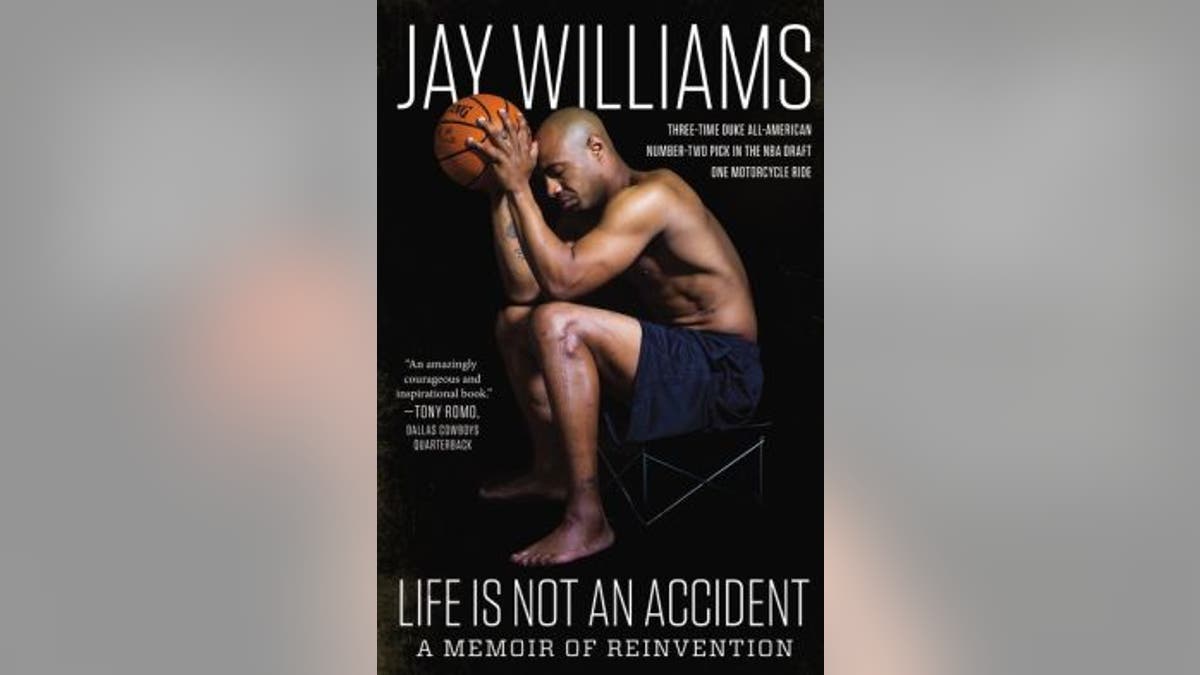
Jay Williams was sitting on top of the world in June 2003. He had recently signed to play with the Chicago Bulls after playing for Duke University. But it all changed in an instant when Williams crashed his motorcycle and nearly died. In "Life is not an Accident: A Memoir of Reinvention," Williams, now 34, recounts the terrible accident and what happened afterwards, including an addiction to painkillers.
FOX411: Your injuries were so catastrophic. Did writing the book take you back?
Jay Williams: It forced me to go back. I didn't want to take myself back for a long time. I don't want to remember the worst day. I want to look forward. Writing the book forced me to go back and re-account all the specific details, not only of that day but all the people I hurt too. That was humbling to go back to those people and get true accounts, of things that occurred when I was high on Oxy-Contin or when I was drinking a lot or depressed overall.
FOX411: It's frustrating reading that you didn't have a motorcycle license and weren't wearing a helmet.
WILLIAMS: Well I guess that kind of describes life. Granted for me it was a motorcycle. I can't tell you how many friends I've had that have been speeding in cars over 100 miles per hour or how many friends I've had after a couple of drinks and I've asked, 'Are you ok?' And they drive home. So we all make decisions in split moments where you're like, 'What the hell was I thinking?' But we all live with a sense of invincibility I think.
FOX411: How close were you to dying?
WILLIAMS: Seconds. I severed an artery in my left leg and I was bleeding internally. I had over ten operations.
FOX411: It's amazing that you worked yourself back to potentially playing again.
WILLIAMS: It was one of those things where reflecting on it, 'Yeah that is really amazing,' but during that time I was so disappointed that I wasn't who I was before and I naturally compared who the new me compared to the old me who had a 40 inch vertical. For me I threw away everything and it made me not want to live anymore and not look people in the face.
FOX411: You became addicted to painkillers.
WILLIAMS: I was taking them three or four times a day. That sends you to a state of mind where you're loopy, you're out of it, nothing really makes sense. Eventually that becomes your norm. Even when I was attempting to come back and play, I needed it to help manage my pain and more so after I needed to help me manage my pain off the court which was emotionally, psychologically dealing with having conversations with people about the past three years and what I've been doing and how I threw it all away and how I messed up one chance.
FOX411: Was that the worst? People telling you how you messed up.
WILLIAMS: It was a combination. It was the every single day people having conversations with me about it. It was also me not being able to hide from my past. Every time I turned on the TV something would remind me of basketball. Being angry and having no one to blame but myself. Nobody did anything to me, I did it to myself and that was way more painful than anything.
FOX411: You found God.
WILLIAMS: I think my relationship with God is a work in progress. I think I've found a community of people that I can believe in. Life is all about who you decide to surround yourself by. I started looking at myself as a company and who's on my board? And I had a teenage drug dealer on my board, I had people who were drinking and partying a lot. It wasn't until I started surround myself with people that actually held me to higher standards than what I held myself to. It kept me on the straight and narrow. That has brought me closer to God.
FOX411: How hard was it to turn anger into gratitude?
WILLIAMS: For the longest time I felt like being alive was more of a consolation prize. It took a long time to get to that point. For me as soon as my accident was over, I tried to change gears and was like, 'How do I get this all back?' And I think a lot of people go through this as well. You spend so much time climbing this mountain, it's not until you get to a certain point and say, 'Wait a second, I've been climbing for the last seven years. And I haven't given myself anytime to acknowledge what I've been able to accomplish. Wait, I am walking again, wait I'm not addicted to Oxy-Contin, wait I do have a career.' It wasn't until I reflected on that, that I became grateful.













































